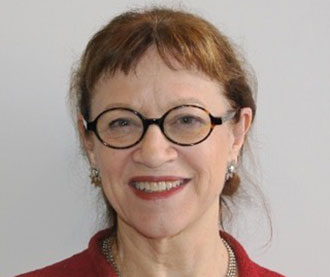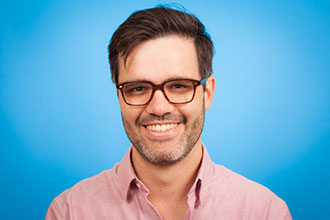‘Patients are the reason we’re here’: Creating and testing a tool to measure patient-centred outcomes in the Emergency Department

By Ana Gajic

Alies Maybee
A study co-designed by patients and published today in Annals of Emergency Medicine outlines the development and evaluation of a patient-reported outcome measure for use with adult emergency department (ED) patients.
Called PROM-ED, the questionnaire builds off previous research and hinges on understanding more about four main outcomes of importance to ED patients: symptom relief, understanding, reassurance, and having a plan. Patients are meant to fill out this questionnaire after leaving the emergency department.
“We have paid a lot of attention to how we send people home after they’re admitted to the hospital for a length of time,” said Alies Maybee, a patient partner and co-author of the study. “When I go to the ED, I’m often treated and go home again. Sometimes, I don’t have a good idea of what happened or what the doctor said because I was in the ED due to pain.
“In our new world of integrated care and Ontario Health Teams, we need to have the tools to close this loop. PROM-ED allows us to start doing that.”
As part of this study to develop and validate PROM-ED, the team of authors from St. Michael’s Hospital worked with patient partners to test which questions to include, and then had 444 participants use the questionnaire.

Dr. Sam Vaillancourt
For Dr. Sam Vaillancourt, an ED physician at St. Michael’s and researcher at the Li Ka Shing Knowledge Institute, valuable patient involvement was a key part of the questionnaire’s successful development.
“Patients are the reason we’re here – the reason our care system exists,” he said. “For too long we have seen the patient experience as one big black box that is all labelled ‘patient experience.’ While we want patients to have the best experiences, we also want to know how their life is after care in our EDs. And that’s what we can disentangle through PROM-ED.”
Maybee, who has worked on seven or eight studies over the course of her career as a patient advisor, was involved in every step of the process.
“Dr. Vaillancourt said to me, ‘I want to do this so I can learn how to do my job better.’ So right away I was on board,” she said.
Now, she’s helped with the early findings of the project that identified the key outcome measures, helped develop the optimal questions for each domain, and co-authored the paper published today. Maybee and Dr. Vaillancourt also co-authored a commentary on patient engagement for the CMAJ on this work.
PROM-ED is being scaled out for further testing in Alberta and Dr. Vaillancourt and the team are looking at ways to put infrastructure in place that will allow all patients to access PROM-ED across Unity Health Toronto once they leave an ED.
As a next step to this work, Dr. Vaillancourt and Maybee are both participating in two co-design sessions this spring to work with family physicians, ED physicians, nurses, patients, and OCAD-U to figure out the best way to get this feedback from patients leaving the ED.
“Measuring outcomes after the ED has been seen as a ‘nice-to-do,’” Dr. Vaillancourt said.
“Now, with PROM-ED, it can become a core aspect of the care we deliver in our EDs.”
About St. Michael’s Hospital
St. Michael’s Hospital provides compassionate care to all who enter its doors. The hospital also provides outstanding medical education to future health care professionals in more than 27 academic disciplines. Critical care and trauma, heart disease, neurosurgery, diabetes, cancer care, care of the homeless and global health are among the Hospital’s recognized areas of expertise. Through the Keenan Research Centre and the Li Ka Shing International Healthcare Education Centre, which make up the Li Ka Shing Knowledge Institute, research and education at St. Michael’s Hospital are recognized and make an impact around the world. Founded in 1892, the hospital is fully affiliated with the University of Toronto.
About Unity Health Toronto
Unity Health Toronto, comprised of Providence Healthcare, St. Joseph’s Health Centre and St. Michael’s Hospital, works to advance the health of everyone in our urban communities and beyond. Our health network serves patients, residents and clients across the full spectrum of care, spanning primary care, secondary community care, tertiary and quaternary care services to post-acute through rehabilitation, palliative care and long-term care, while investing in world-class research and education. For more information, visit www.unityhealth.to.
